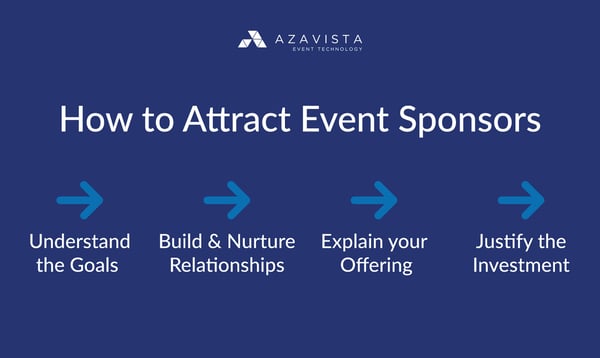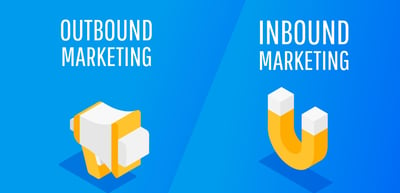October 22, 2024
 by Isabella Sevilla / October 22, 2024
by Isabella Sevilla / October 22, 2024

Do you drown in invoice receipts while forecasting expenses for an event?
Brands owe a lot to event marketing. Putting grandiloquent canopies and organizing a feast or a dinner roundtable for clients is still the best way to spread awareness and build organic engagement. However, when these events are organized on a large and cross-border level, the arrangements need to be elite. Organizing these mega ceremonies fishes out the entire budget, adds more liabilities, and causes financial shortfalls for companies.
When the events can't be compromised, the brand needs to turn to like-minded sponsors to fund their event. But how do you get sponsors?
To make the event a blazing success, making connections via event networking and matchmaking software can foster collaboration between attendees and sponsors and shortlist high-intent sponsors who can back you financially in your mission. But, before that, you need to go back to the drawing board.
Getting sponsors for your event depends on your marketing and outreach pitches with external stakeholders. Businesses can get sponsors via cold emailing, PR promotions, and community networking. Highlighting sponsors' products and services in your pitch and justifying monetary returns are two crucial factors.
As a business, the sooner you understand the event marketing channels to use for sponsor promotion, the better you can justify the return on investment (ROI) intent and gain funding.
Sponsors need a say in everything. Even in the event's design and content creation phase, some sponsors anticipate a mention of their brand. So, before you send out the event invites, sponsors want their work to be highlighted. But not all sponsors are tight-headed and curt.
Before you deliver personalized pitches to event sponsors, take a step back and analyze your own budget. Would the extra investment benefit your company's growth, and does it justify pleading sponsors with PR promotional gear for them?
If your event supports a bigger cause or a selfless initiative and would host guests and dignitaries from highly reputable institutions or government entities, then yes, you need a sponsor. But what if you can comfortably spend company capital to offset expenses? No, you won't need a sponsor in that situation.
Below are some examples of when your company needs a sponsor and when it doesn't:
One reason companies support events is that sponsorships can be leveraged as excellent marketing and sales strategies. They are ultimately looking to connect with their target audience, whether to directly boost sales or leads, improve brand recognition, enhance their image, or all of the above.
When it comes to attracting sponsors, you should ask yourself what you can offer them that directly aligns with their campaign strategy in future. Will they benefit from sponsoring the event? Your proposal needs to prove that by financing your event, sponsors will be getting more than just extra clicks to their website.
Whether you are planning an in-person or virtual event, the process of finding the right sponsor is similar. The first thing that you need to do is revise your event goals, understand what you can bring to the table, and identify how your event will provide a unique value to potential sponsors.
Based on this information, you should compile a list of potential companies that might be interested in what you have to offer. Once you have narrowed down your options, the next step is crafting a tailored sponsorship proposal that aligns with your sponsor's needs.
Like any other business deal, it needs to be a win-win situation. When you have that ready, you can start reaching the event to your prospects. Be confident in your approach; you’ll be far more successful if you can reflect this in your delivery.
Getting funding for any type of event can be an attainable goal; it just requires a well-thought-out event strategy. To secure success, you need to find companies that align with your values. These five tips will help you identify your event purpose and goals, know what you want out of a sponsorship, and get clear about the type of companies you’re trying to attract.
Start by having a deep understanding of the event’s purpose and end goal. Think about why you are producing it. What is the outcome you are hoping to achieve? What sets you apart from other similar events?
Sponsors will ask these questions when receiving your proposal. This exercise will help you create enticing proposals that showcase your unique incentives. It will also make you appear organized and passionate, which builds trust with your prospects.
Defining your criteria will help you determine whether or not a company is a good fit for your event. Not only will you save time by avoiding reaching out to companies that don't align with your brand, but you’ll also bring value to your existing audience by introducing them to companies that offer a product or service they are looking for.
To secure profitable and productive sponsorships, focus on identifying which associations would make great partners. Are you looking for sponsors who understand the value of event marketing? Or whose target audience matches yours in demographics and interests? You’ll see how you end up with a broad range of options from which you can choose.
Once you know the particulars of your event and the type of companies that you’re trying to attract, you can create a list of potential sponsors that fit your criteria. To find them, you can rely on existing tools designed to help you with this task, such as SponsorPitch, SponsorPark, Sponeasy, or SponsorMyEvent. While you’re listing down companies that align best with your event, remember to add any relevant data, such as the contact information of the decision-makers.
Do your homework! Another way of finding sponsorship is to reverse engineer the process and search for events similar to yours to discover which companies offered financial support. Since these associations understand the value of an event sponsorship, they very likely will keep investing in this type of marketing. Likewise, they already know that their target audience aligns with yours, which makes them easier to approach.
While looking for events that share your target audience, why not also ask your attendees for sponsor suggestions? This will make them feel valued because you’re letting them know their opinions matter.
Think about it: Do you want to have companies in your event that don’t resonate with your attendees and make them feel like they don’t belong in that ecosystem? For an attendee, seeing a brand on your sponsor list that they’re already familiar with makes it easier to connect with it. So don’t hesitate to ask your audience for help!
Now that you know how to find the ideal companies let’s see how you can attract and entice them to commit to your event. You’ve already done some research on your potential sponsors; it's time to move that research into action!

Getting to know your sponsors better will help you address questions like who the key decision-maker is. What’s in it for them in the sponsorship? how are you helping them meet their objectives? The more information you have on each company, the better you’ll be at communicating the event value in your pitch, which is essential to secure partnerships.
Building relationships with companies before asking for their support will help you successfully sponsor your event. Attending the same events decision-makers attend, interacting with them, or reaching out via LinkedIn are great alternatives to starting to build connections with these companies. Don’t forget that your goal is to create a relationship that isn’t an “ask” from the get-go.
No company will financially support your event if there’s no equal exchange of value that benefits both parties. Think about what you are offering them in return. VIP treatment? Subscriptions to a product or service from your company? In any case, you need to determine the unique incentives that your sponsors will get from funding your event. It has to be a win-win relationship if you’re serious about making a profitable event.
Everyone likes a business continuity plan, and in the case of an emergency or funding falling through, your sponsors might want to know that they’re safeguarded. To be prepared for all scenarios, draw up a contract with terms that benefit them if they pull out but protect you if they do as well.
Keep in mind that if you decide to move forward with no guarantee other than your word to back up their investment, it’s very unlikely that any company will commit their money, causing your deal to fall apart.
Companies that sponsor events have their own financial goals, and data is important for predicting the success of the investment. Justify how the success of your event is co-related with investors' growth and can create amicable ROI for them.
To present the most relevant information in your sponsorship proposal, think first about why funding your event can benefit them and their customers the same way they’ll benefit you and yours. Have you landed some big clients lately? Do you have a new product on the horizon?
Use this opportunity to show your sponsors your biggest wins. Rail them in with strong data visuals that outline relevant facts, figures, dollar amounts, and anything else “shiny” and enticing about your event. Make sure to keep your data up to date for when you present it in your proposal.
When reaching out to companies, don’t “cold pitch” sales associates who can’t help you and probably won’t pass your information along. Also, don’t randomly message people at the company in hopes they’ll put you in touch with the right person.
These approaches are just a waste of time and will not help you attract your potential sponsor, at least not in a good way. There are several decision-makers for event sponsorships, so make sure to find the right people to communicate with and cut out the middlemen. You can start within your network and reach out to people you already know—something positive can come up from it!
Once you have pitched your proposal, don’t forget to follow up in a timely manner. Not having an answer back from decision-makers doesn’t necessarily mean that they are not interested. They are very busy people, so it’s understandable if they missed your initial emails and/or social media messages. Wait for a week or so to follow up at least once more.
Often, making a quick call can be more effective than sending another email. If they don’t get back to you within an acceptable time, move on to another potential sponsor. It’s not recommended to put all your eggs in one basket, so don’t rely solely on one option.
If you want to do a quick recap of the most important information we've covered, here are the key takeaways from the post:
Gathering a sponsor's backing isn't a mark of an underplayed or loss-bearing organization. On the contrary, it translates into your zeal for experimentation and opening more doors for community growth by building the right connections with emerging thought leaders, marketing experts, and tech experts. This is all required to step up that business ladder and follow the grit of investing in smart financial growth.
If you are looking out to send invitation cards to the next company event, we hope this article on how to build smart event sponsorship helped you!
Help yourself find event sponsors and more by selecting a top-tier event management platform for all of your future event planning needs!
This article was originally published in 2020 and has been updated with new information.
Isabella is the Content Marketing Specialist at Azavista, an event management platform that covers all needs for event professionals globally. She’s passionate about digital marketing and loves to connect with her audience through quality content. In her free time, she enjoys getting lost in museums, traveling to new places, and learning from different cultures.
Have you ever felt a genuine connection with a brand?
 by Gaetan Gabor
by Gaetan Gabor
Your brand isn't just a logo, it's the feeling you evoke, the values you champion, and the...
 by Jordan Wahl
by Jordan Wahl
Have you ever felt a genuine connection with a brand?
 by Gaetan Gabor
by Gaetan Gabor
Your brand isn't just a logo, it's the feeling you evoke, the values you champion, and the...
 by Jordan Wahl
by Jordan Wahl



